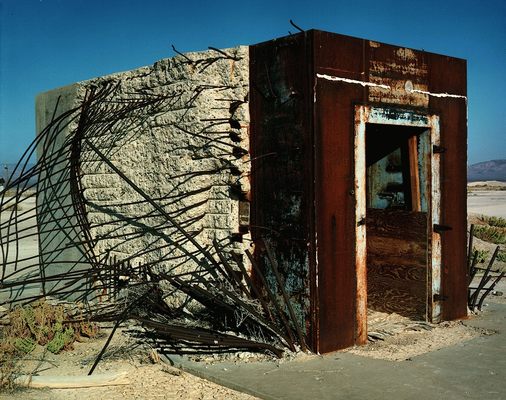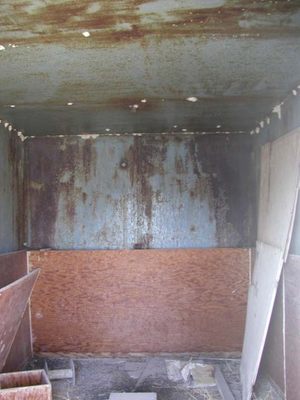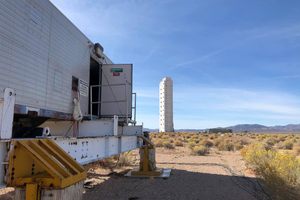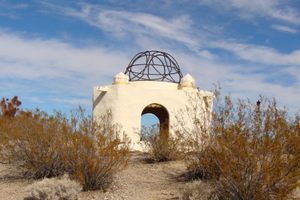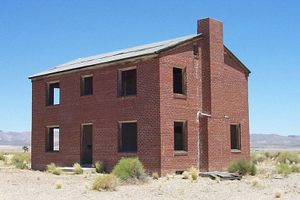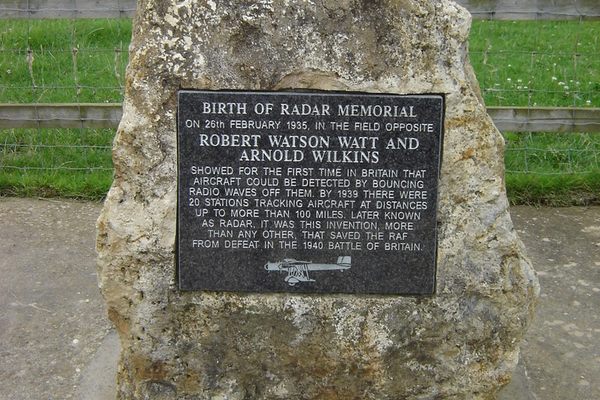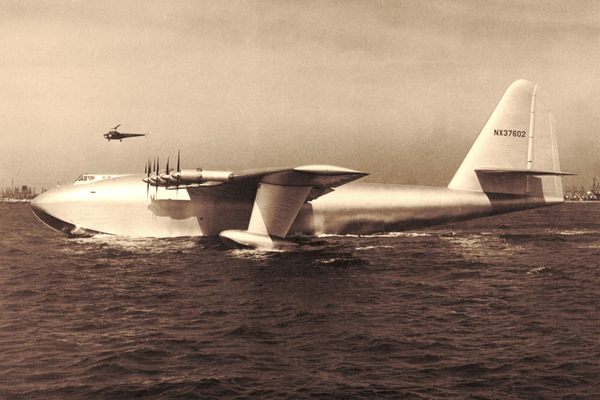About
At 6:29 a.m. on June 24, 1957, a group of scientists with the Atomic Energy Commission eyed the seconds hand on their wristwatches and steeled themselves for the imminent blast. A moment later the 37-kiloton atom bomb lit off, immediately expanding from a flashpoint into a massive fireball that obscured the rising sun as far away as Las Vegas.
When the shock wave reached the reinforced observation blockhouse it hit the scientists like a mule kick and tore doors from their hinges. “We expected a hard knock,” one AEC technician told the Associated Press, “but not quite this socko.”
As the dust settled over the scorched expanse known as Frenchman Flats, a civilian eagerly awaited permission to examine the test results. This moment was a long time coming for Edwin Mosler, who months earlier had convinced the Federal Civil Defense Administration to let him erect an armored bank vault near the atomic epicenter. And as president of the Mosler Safe Company, his name and word were literally on the line.
The vault gimmick was ostensibly aimed at shoring up public confidence that the national economy could weather a nuclear exchange with the Soviet Union. Newspapers like the Battle Creek Enquirer picked up reports the next day that “The test to investigate the level of resistance of materials and structures to a nuclear blast at close range was in response to the concern on the part of banks and insurance companies over protection of vital records and valuables.”
That was a charitable interpretation of the safemaker’s motives. Viewed through another lens, the move was also a carefully engineered public relations stunt. Blurbs about the test sprouted in newspapers across the country as Mosler made sure everyone know precisely which company made the strongbox. The Mosler Safe Company’s largest customer was the U.S. government, and their marketing materials were packed with references to their high profile government work at the National Archives, Fort Knox, and now, on the atomic field of battle.
The Mosler Safe is still sitting out there in the desert, at the Nevada Test Site about 65 miles from Las Vegas. The door has been removed, but the colossal strongbox may likely remain intact until the end of time. Hopefully we’ll still be reading about it centuries from now, and never need the shelter from atomic bombs that it was designed to show off.
Related Tags
Published
August 2, 2017
